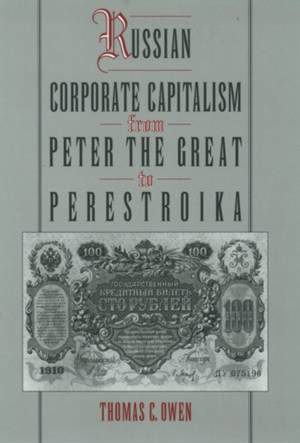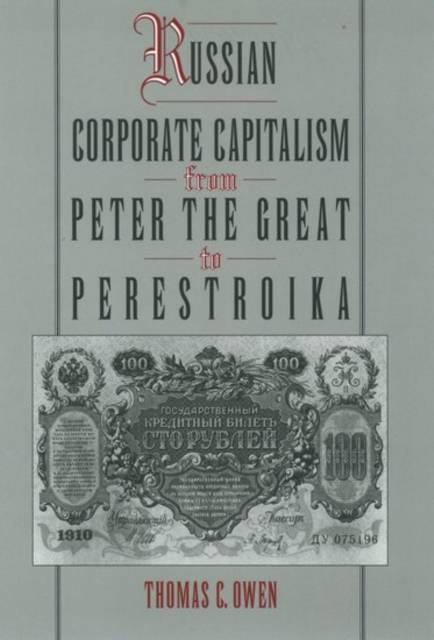
- Afhalen na 1 uur in een winkel met voorraad
- Gratis thuislevering in België vanaf € 30
- Ruim aanbod met 7 miljoen producten
- Afhalen na 1 uur in een winkel met voorraad
- Gratis thuislevering in België vanaf € 30
- Ruim aanbod met 7 miljoen producten
Zoeken
€ 305,45
+ 610 punten
Omschrijving
From the three perspectives of geography, economic policy, and ideology, this work examines corporate capitalism under the tsarist and late Soviet regimes. Thomas C. Owen discovers a remarkable history of thwarted effort and lost opportunity. He explores the impact of bureaucratic restrictions and reveals the entrepreneurial capabilities of Russia's corporate founders from various social groups as well as the prominence of Poles, Germans, Jews, Armenians, and foreign citizens in the corporate elite of the Russian Empire and its ten largest cities. The study stresses continuities between tsarist and late Soviet periods, especially in the persistence of anti-capitalist attitudes, both radical and reactionary. A provocative final chapter considers the implications of the weak corporate heritage for the future of Russian capitalism.
Specificaties
Betrokkenen
- Auteur(s):
- Uitgeverij:
Inhoud
- Aantal bladzijden:
- 272
- Taal:
- Engels
Eigenschappen
- Productcode (EAN):
- 9780195096774
- Verschijningsdatum:
- 7/12/1995
- Uitvoering:
- Hardcover
- Formaat:
- Genaaid
- Afmetingen:
- 163 mm x 241 mm
- Gewicht:
- 512 g

Alleen bij Standaard Boekhandel
+ 610 punten op je klantenkaart van Standaard Boekhandel
Beoordelingen
We publiceren alleen reviews die voldoen aan de voorwaarden voor reviews. Bekijk onze voorwaarden voor reviews.











